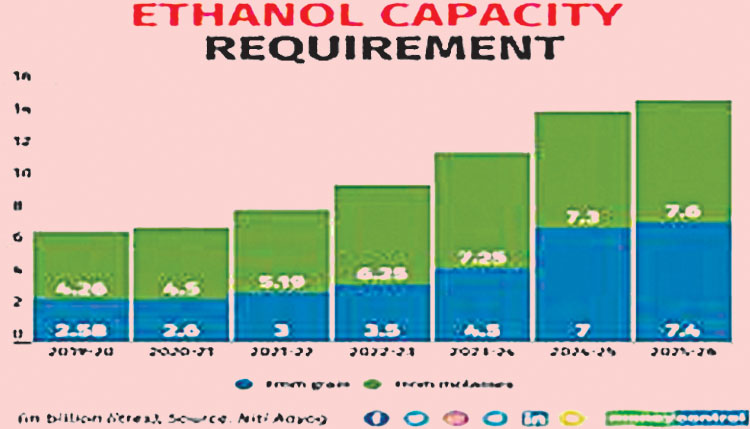Mr. Ramakrishna Y B, a Member Expert of the Working group on Bio Fuels, Ministry of Petroleum & Natural Gas, said that “It is heartening to note that India has achieved the 10% Ethanol blending target in Petrol in May 2022, seven months ahead of the target date. This development comes as a boon to the Sugar Industry who were bogged down with excess sugar production, unattractive domestic and international prices and accumulated dues to sugarcane growers.” On the back of this announcement, Mr. Ramakrishna said, “The Government of India took a decision to shift the Bio Fuel Program from Ministry of New and Renewable Energy to Ministry of Petroleum and Natural gas in early 2018. MoP&NG soon came up with a New National Policy on Bio Fuel 2018. The policy aims to utilize, develop and promote domestic feedstock for the production of Bio Fuels thereby increasingly substitute fossil fuels and contributing to Energy Security. It also aims at climate change mitigation apart from employment generation in a sustainable way.”

“The goal of the policy was to achieve about 20% blending of Ethanol in Petrol and about 5% blending of Bio Diesel in Diesel by 2030. The New Policy now allows Ethanol production from B- Molasses, sugar cane juice, Sugar Syrup, Crops such as Sugar beet, sweet sorghum, corn, cassava, rotten potatoes and Surplus & rotten food grains unfit for human consumption. Sugar mills while balancing the Sugar production to ensure meeting domestic demands, started building additional distillery capacity and fully utilizing the under-utilized capacities. Broad basing the feedstocks for first generation Ethanol also resulted in investment decisions to set up several hundred of gain based standalone distilleries.” He added. Mr. Ramakrishna also stated that “Government of India policies coupled with the overwhelming response from the Sugar Industry, independent distilleries and not in the least aggressive blending program by OMCs has today resulted in achieving the 10% blending target 7 months ahead of the target date. All the new initiatives are expected to help reach more than 15 billion liters per annum of first-generation Ethanol by 2025. The commitment demonstrated by all the stakeholders has given the confidence to the government of India to advance the 20% blending target from 2030 to 2025. With 10 % blending target achieved in May 2022, India enters into the league of three Nations to have achieved this milestone besides Brazil and United States of America.”
“Commitment of the Government is unprecedented. The successful implementation of the program will not only help steadily move towards Energy self-reliance but will help boost the rural economy, employment generation, additional income to farmers and create clean and green environment in the process fulfilling the objectives of Aatma Nirbhar Bharat, Make In India and Net Zero initiatives.” He concluded. Mr. Ramakrishna Y B, Member Expert – Working group on Bio Fuels, Ministry of Petroleum & Natural Gas. Mr. Ramakrishna Y B has been involved in the Biofuel program for over two decades. He has served as Chairman of Karnataka State Task force on Biofuels and Karnataka State Biofuel development board between 2008-2013. He has served as the Chairman of the National working group on Biofuels between 2015-2018 and continues as an expert member till date.

